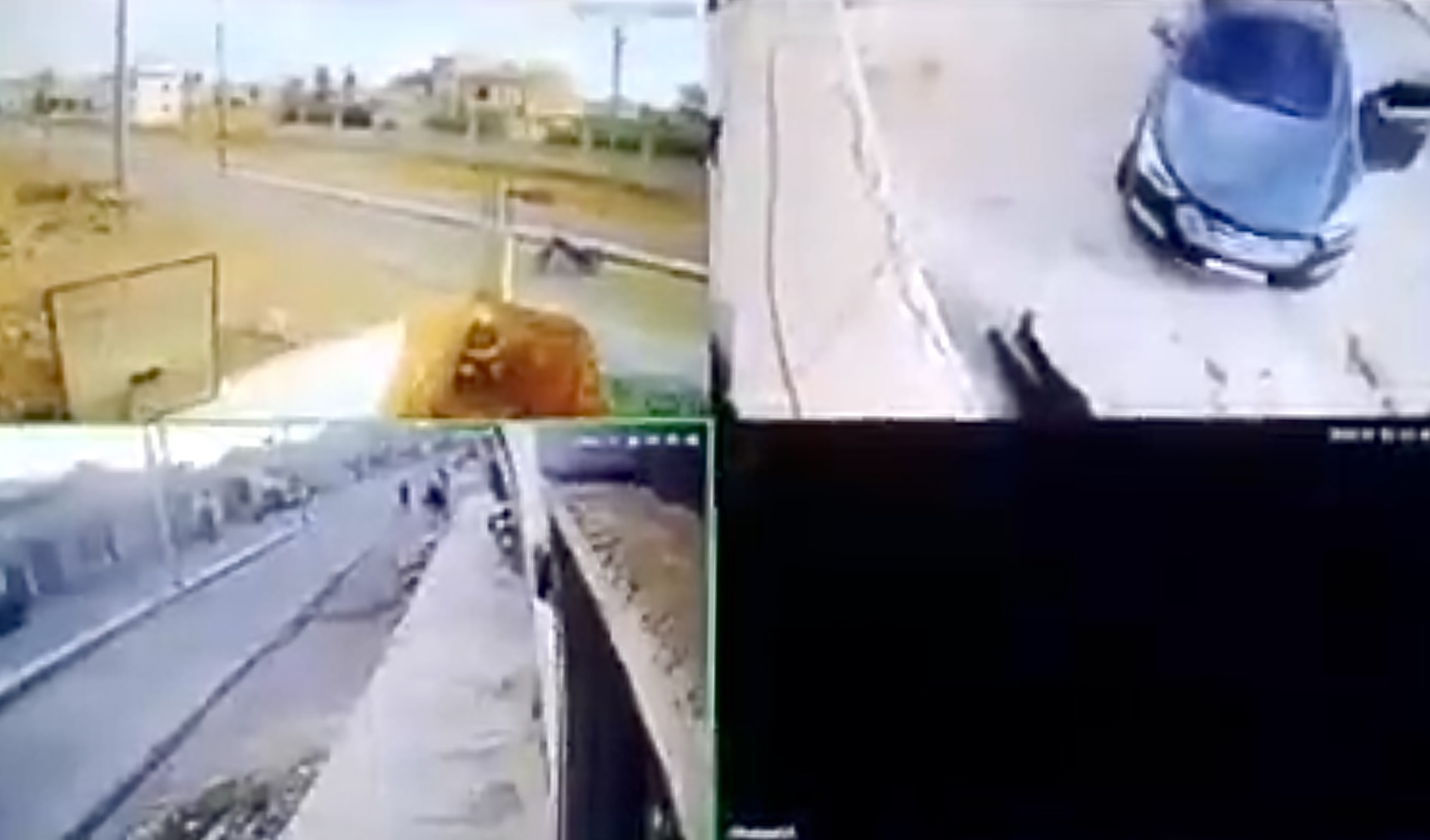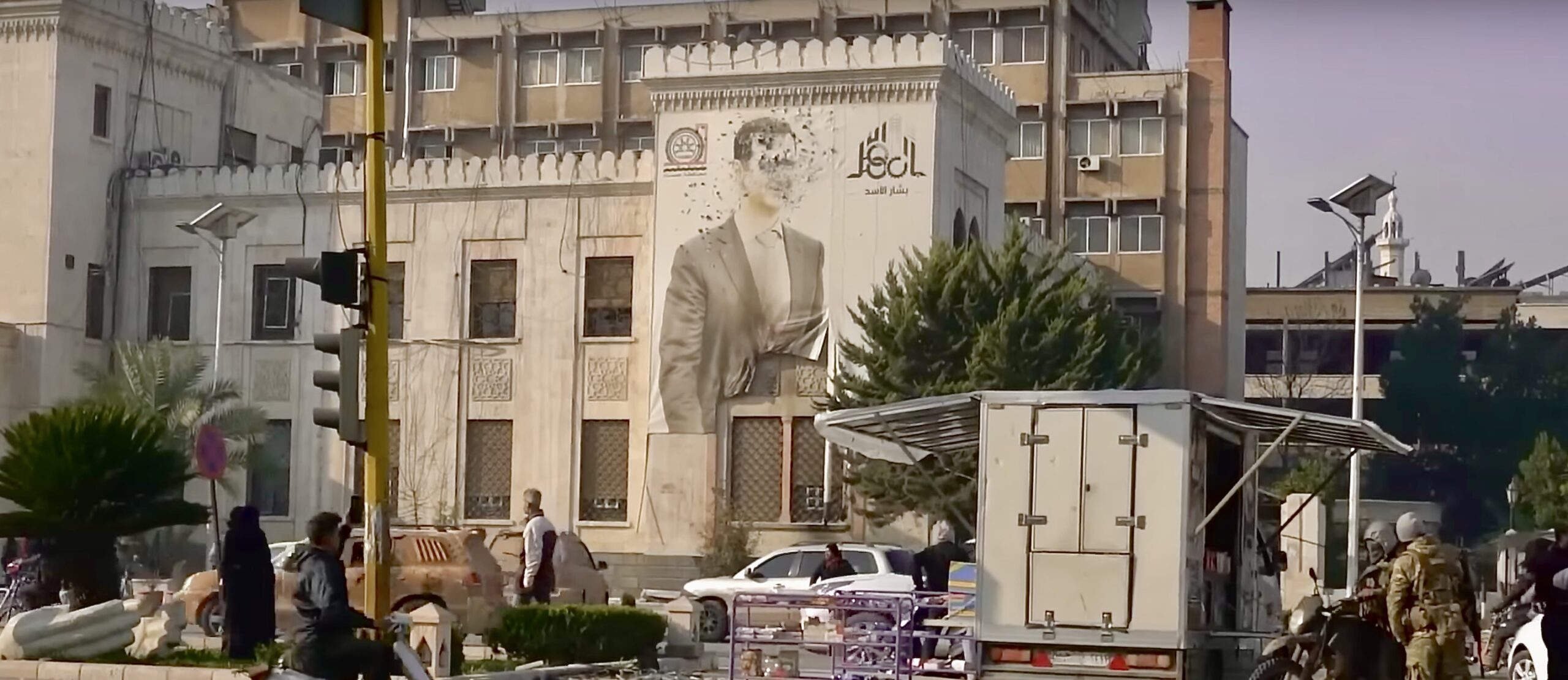- Reading time : 5 min.
Captagon trafficking: For Syrian journalists, investigation is still forbidden
Syrian journalist Mahmoud al-Harbi was murdered after breaking the omertà on Captagon trafficking in the south of the country under Bashar al-Assad. Despite the fall of the regime two months ago, investigating this lucrative business remains extremely risky for Syrian journalists. Three of them have entrusted Forbidden Stories with their findings so their work can be continued.
- Captagon trafficking continues on the border between Syria and Jordan, despite the fall of Bashar al-Assad's regime which had been at the forefront of this lucrative business.
- One of the men suspected of murdering journalist Mahmoud al-Harbi is now free and continues to associate with Captagon traffickers.
By Paloma de Dinechin
February 8, 2025
Forbidden Stories team
Director of publications : Laurent Richard
Editor : Frédéric Métézeau
Publication Coordination : Louise Berkane
Video : Anouk Aflalo Doré
Fact-check : Emma Wilkie
Copy editor : Simon Guichard,
Mashal Butt
Translators : Amy Thorpe
Communication : Alix Loyer
Web integration : Louise Berkane
Even in post-Assad Syria, some investigations remain forbidden to Syrian journalists. This is the case for Captagon trafficking, manufactured in Syria and widely spread in the Middle East. Under Bashar al-Assad’s regime, a reporter was assassinated after daring to write about this drug.
Portrait of Mahmoud al-Harbi al-Kafri, Syrian journalist who investigated Captagon trafficking.
A hail of bullets. On November 10, 2023, as Mahmoud al-Harbi al-Kafri was about to start his car on a road in the Syrian village of Maaraba, his assassins showed him no mercy, as evidenced by video surveillance footage Forbidden Stories was able to access. A journalist for the local media outlet Daraa 24, al-Harbi had revealed the involvement of a local family in the trafficking of Captagon, a synthetic drug with stimulating effects, 10 days before his assassination.
In this article, published without al-Harbi’s name, he claimed that “al-Ruwais’s father comes from a Bedouin tribe and is accused of working in the drug trade… His farm, allegedly used as a warehouse or laboratory for manufacturing Captagon, was evacuated after the Jordanian bombardment of trafficking headquarters in Daraa and Suwayda.”
Located near the border with Jordan, these two towns in the south of Syria have become hubs for the trafficking of Captagon: a strategic gateway to the Gulf states where an amphetamine pill can be bought for up to $20 each.
Captagon, a more than $10 billion trade
Daraa 24, a local media outlet founded in the Syrian city of the same name in 2018—under Bashar al-Assad’s merciless regime—presents itself as “an independent media network unaffiliated with any political or military entity.” Articles do not name their authors, and journalists are not required to reveal their identities. The editorial team, about 30 strong, has built up a solid reputation over the years by publishing several articles on the illegal trade of Captagon—estimated to rake in more than $10 billion each year according to Le Monde—sometimes naming specific families and individuals directly involved.
CCTV footage obtained by Forbidden Stories, just after the assassins of Mahmoud al-Harbi al-Kafri had fled. (Credit: Forbidden Stories)
“Captagon trafficking is three times bigger than the trafficking done by Mexican cartels, so we have to expose it,” Mikad* told us. Discreet and cautious, the editor-in-chief of Daraa 24 is a “shadow,” even to his colleagues, whose safety he tries to guarantee at all costs. “I can’t say precisely which article or news item led to [al-Harbi’s] death. What I do know is that he was killed by a militiaman linked to a Captagon baron.”
A CCTV camera allowed for the identification of one of al-Harbi’s murderers: Mohammad al-Arif al-Abbas, sentenced to death on March 2, 2024, before escaping from prison almost a month later under mysterious circumstances.
“I knew I had to stay away from it. I saw everything, but I only published reports about the official seizures put forward by the regime.”
Behind the billions of Captagon pills exported around the world, the hand of the al-Assad clan is never far away. Over the years, drugs even became the economic mainstay of the regime suffocated by war and international sanctions.
It’s a subject that local journalists like Sultan al-Halabi, who is using a pseudonym for his investigations, have preferred not to tackle. “I knew I had to stay away from it. I saw everything, but I only published reports about the official seizures put forward by the regime,” said the 33-year-old resident of Suwayda, the Druze capital located some 100 kilometers from Damascus. “Captagon was everywhere in town, but we could only talk about it on the surface,” he added.
Portrait of Bashar al-Assad defaced in the streets of Hama, just after the fall of the regime in December 2024 / Credit: VOA
Although the Suwayda region was spared arbitrary arrests and bombings under the dictatorship, surveillance of the population and local journalists continued. Al-Halabi was able to see this for himself after al-Assad fled and the regime fell in December 2024.
In the archives of the Syrian intelligence services, he recovered a notebook titled “Information,” in which his name appears alongside those of a hundred other journalists and activists from his province. His life had been dissected by the dreaded Mukhabarat: “married,” “did not do his compulsory military service” and “was part of the demonstrators in Suwayda.” Right up to the last hours of the Baath Party’s rule, intelligence agents recorded every detail of his life.
This constant surveillance, coupled with the reign of terror in Syria, only increased the risks for those who dared to write about Captagon. Ahmed, a journalist for Al Rased News and father of two, admits to having censored himself to protect his family. “We limited ourselves to information published by media close to the regime,” he said. “It was too risky to go any further.”
For his colleagues, al-Harbi’s murder drew a “red line”
More than a year after al-Harbi’s murder, the Daraa 24 team discovered a video showing one of his presumed assassins attending a wedding for a child of Mohammad al-Rifai, also known as Abu Ali al-Laham, wanted by the new authorities, according to the Qatari news channel Al Jazeera. Al-Laham, a former intelligence commander in al-Assad’s air force, is accused of kidnapping, murder and masterminding the trafficking of Captagon to Jordan.
“When we learned of al-Harbi’s death… it sent us a clear message: ‘don’t touch this subject.’”
For journalists in the region, al-Harbi’s murder drew “a red line that must not be crossed,” said Mikad.
“We knew what Daraa 24 was courageously publishing about the Captagon gangs when we learned of [al-Harbi’s] death. And that sent us a clear message: ‘don’t touch this subject,’” explained al-Halabi.
Even after the fall of the regime, “Captagon remains a taboo subject” in the region according to Mikad.
Rebels gathered around a statue of Bassel al-Assad, Bashar al-Assad’s brother, during the capture of Aleppo in November 2024. The statue will be demolished later that day / Credit: VOA
Since al-Assad fled to Russia, armed men have been roaming Suwayda’s streets, but their identity remains unclear. “A few have fled, but the majority of militiamen are still there. The fall of [al-Assad] hasn’t changed any of that,” al-Halabi told us.
Asked about the possibility of abandoning his pseudonym, his response was clear. “No. I know that many journalists have revealed their identities, but I appreciate the freedom that comes with having my name protected. That said, even working anonymously, you can’t access all the sources on Captagon, because it’s still dangerous.”
Unable to publish some of the sensitive information they hold, al-Halabi, Ahmed and Mikad decided to pass it on to Forbidden Stories in the hope of breaking the omertà surrounding Captagon trafficking: an evil that continues to plague the regions of Suwayda and Daraa.
*First names of the journalists interviewed have been changed for security reasons.
See also






